Children of the Knight, Michael J. Bowler [classic book list txt] 📗
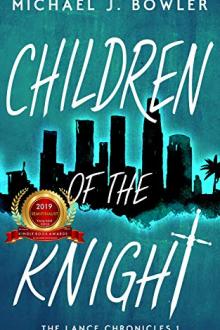
- Author: Michael J. Bowler
- Performer: -
Book online «Children of the Knight, Michael J. Bowler [classic book list txt] 📗». Author Michael J. Bowler

The following days for Arthur, Lance, and their rapidly swelling army settled into a routine. Weapons and fight training in the mornings, lunch, and then Arthur would offer instruction on the ways of knighthood, with discussion and questions afterward.
The number of gang members who attended, and indicated their intention to reject their old gang and join Arthur’s new one, swelled by the day, though Arthur continually made it clear his was not a gang. His was a brotherhood. The homies explained to Arthur that street gangs were about brotherhood too, just mixed in with criminal activity and running the streets.
The Round Table, Arthur repeatedly assured them, would be different.
“As Knights of the Round Table,” he explained one day, “you follow the code of chivalry, as I have told thee. Above all, that means honor. The weapons we be using, and with which thou art all training, shall be used only for self-defense, and to protect those who are defenseless. You have not been able to win the hearts and minds of the people through violence and crime, but you shall through service to all.”
“There’s always gonna be vatos wanna run their own, Arthur,” Esteban pointed out. “They ain’t gonna like us musclin’ in on their territory. That always means war.”
The gang kids nodded their assent.
Arthur tipped his chin approvingly. “You be correct, Esteban, as it hath always been with mankind. However, does life itself not seem too bitter already without territorial battles or wars or feuds?”
Esteban shrugged, but many of the nongang kids nodded their assent.
Mark and Jack exchanged a knowing look.
Esteban was no longer clad in a tight tank top, but had adopted one of Arthur’s tunics and accompanying leather drawstring pants while in the presence of the king. As was the custom, most of the other gang kids followed his lead.
“The motto of this world seems to be ‘Do what is easy’,” Arthur continued, his eyes roaming their expectant faces, making eye contact with as many as possible. “Ours shalt be as follows––do what is right, rather than what is easy.”
He let that sink in a moment.
“That done be hard, Arthur,” Darnell threw out, and many heads nodded their agreement.
“Anything that be worth doing doth be hard, Darnell.”
Darnell fell silent to digest this.
Arthur went on, “Might lies within the bad half of people, the selfish half. We cannot cut it out, so instead we turn a bad aspect into something good—we agree as a knighthood to use might only for right. It shal be the oath to which all of thee must swear.”
The assemblage nodded in understanding. Lance clarified the message by explaining that as knights they’d have to switch “me” with “we,” and not just the “we” of the Round Table, but the “we” of society. They were to put their own interests and wants second to the needs of the community. Arthur accepted the reality that children and teens were naturally self-centered, so, while Lance’s “we” over “me” idea was an easy concept to understand, it was a hard one for them to put into practice. His previous life had taught him that most adults cannot manage such a seemingly simple philosophy.
Lance and Mark and Jack and others within his inner circle had assured him that enough of the kids would give it their best shot, not because it came naturally, but because their lives were so lousy that anything else would be better, especially a campaign that sought to right the wrongs that had been done to them.
Arthur continued making eye contact with as many of the children as possible while he spoke, and he saw eagerness in their eyes. They wanted this, he knew. They craved this opportunity to make a real positive change in their lives.
“In the world today, I hear that what be wrong for some be right for others, and what be injustice for some be justice for others. Be assured of this, my young knights-to-be, right and wrong doth be for all peoples and all situations. We must strive at all times to elevate the good half of ourselves, rather than give in to the bad. Only then can we achieve greatness.”
Esteban raised his hand. “What if, like, you give some vato a mess a chances and he keeps screwing ya on purpose? How can we have mercy, like you been saying, for guys like that?”
“Ah, Esteban, there doth be no limit to mercy, and the treacherous need it most of all, for how else can they learn?”
Esteban fell silent, considering this answer while the other gang kids began murmuring amongst themselves. This was an idea they’d always believed would never work on the streets and so it had never been attempted. But now Arthur had gotten them wondering, which was precisely his intent.

That afternoon, Jenny stood before her eleventh-grade English class taking roll. Of the thirty-nine who should be present, she only had twenty-five. And all those missing were boys. What was going on? Admittedly, most of these boys hated school, and their attendance was hit and miss anyway, but now she hadn’t seen them for several days straight.
Teachers were supposed to call home when kids missed more than three days, but how could she call all these parents when this attendance pattern was occurring across every one of her classes? She’d be here till six o’clock every day making calls, and when would she grade papers or prep lessons?
Shaking her head in confusion, she addressed the class. “Anybody know what happened to the kids who’ve been absent a lot?”
Heads shook disinterestedly, but no one answered.
“Okay, pass forward your homework.”
A few papers drifted languidly up the rows to the front, and Jenny collected them, gazing in consternation at the small number.
“This is all the homework? Ten papers?”
Many students shrugged again and looked bored. Dejected, Jenny set down the papers on her impeccably ordered desk and turned back to the class.
“Okay, pull out your copies of The Great Gatsby and we’ll continue.”
Groans arose as backpacks came up and hands went digging for the book. Some kids ignored her request completely. One boy continued doodling; another put his head down, while two girls passed a nail-polish bottle back and forth.
Jenny eyed them all with wonder and annoyance. Here she was doing her best and they didn’t even care. Of course, she reminded herself, you have a choice to be here. They don’t. And they don’t have a choice of what English class to take, either. Fighting back her annoyance, she set out to implement her lesson plan for the day, and sought to make it as fun as possible.

The following afternoon, hundreds of tired, but emotionally satisfied youths crammed around Arthur within the chamber for their daily discussion. Arthur and Lance had spoken of their growing need to find another, larger venue to conduct trainings and meetings and to make plans, but neither could think of an option. Even Esteban, who joked about using the old Coliseum downtown, had no viable suggestions. The sheer number of recruited kids was daunting.
Word would go out on the streets about Arthur and his crusade, and every day there would be new faces among the throng. Some were disaffected gang members looking for something more fulfilling, while others were just cast-offs like Lance who needed a home.
As always, Arthur sat on his throne, which several of the girls festooned daily with flowers they’d bring with them. Lance sat at his right, sitting taller and more confident in his seat.
“Here, in your land,” he told the assemblage, “I have beheld much divisiveness between the various peoples. Such be true of mine own time as well. Humanity hath not changed much, I’m afraid. As was true then be true now— thou have all been conditioned by thine elders that cultural separatism be an integral part of thine identities, that differences be of greater import than similarities. This be totally false, my noble company. No matter our background, we all be the human children of God and far more similar than different.”
The kids looked at each other thoughtfully—black and white and brown and Asian and Pacific Islander and gay and straight and those who weren’t certain who or what they were or would be. Some looked accepting of the notion, while many appeared unsure.
Noting their hesitation, Lance stood to face the king. “May I, sire?”
Arthur nodded.
Lance turned to gaze at the crowd. All eyes were fixed upon him expectantly—he was one of them, after all, and they looked eager to hear what he had to say.
“When I first met Arthur,” Lance began, butterflies doing cartwheels in his stomach, “I thought like he just said. I’m Mexican, an’ I grew up on the streets or in foster homes my whole life.” His voice grew more confident with each word. “I learned from black adults that Mexicans were dirty, from Mexican adults that blacks were dangerous, from white adults that I was lower ’cause I had brown skin, and from straight adults that gay people were perverts who should all be killed.”
There were gasps, nods, and head shaking from various kids in the crowd.
Most of them had obviously heard the same things.
“I started to think like that too, just like all the other kids I knew. But when I got into skating, I met black skaters and white skaters and Asian skaters, and I found out we were all the same. We loved skating. We cried when we got hurt. We bled when we got cut. There was nuthin’ different enough to be worth hating on. All those hater adults who taught me wrong should be ashamed. The only group I still hated on when I met Arthur was—” He paused and looked embarrassed. “The gay kids.”
Some of the gang members laughed and high-fived each other. Lance glared them into silence. Then he met Mark’s gentle eyes, and the blond boy gave him that shy little smile.
“I was wrong there, too,” he announced in a commanding tone. “When I got to know Mark and Jack, it was just like with them skaters I hung with. I ain’t no different than any gay boy in here and neither is none a you, I don’t care how hard you are. They didn’t choose being gay any more than I chose to be Mexican or homeless.” His eyes roamed the sea of faces before him. “If we’re gonna make this whole fellowship-thing work, if we’re gonna take all this might we got and change things to make ’em better, we can’t be hating on each other, or anyone else out there who don’t look like us. We have to be a team!”
“Like the Avengers!” Mark shouted excitedly and began applauding vigorously. “Lance is epic!”
The chamber erupted into thunderous clapping and foot-stomping approval, even from Esteban and Reyna, which caused Lance to blush with embarrassment. They were supporting… him! He turned to Arthur, whose beaming smile of pride warmed his heart more than all the applause in the world.

Down in South Central Los Angeles, Justin was hard at work, standing on a shadowy street corner between two buildings, waiting for the junior high down the street to let out. He wore a long coat and designer sneakers, the newest style, lots of bling, and of course, his cartoon-character backpack. When he did business, he liked to show off. His father had wanted to have dinner tonight, but Justin didn’t want any part of his dad and the other pigs. Except maybe to

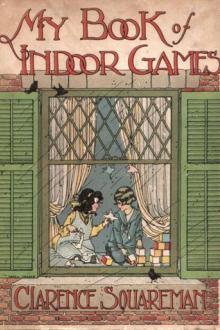
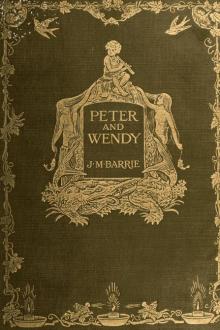
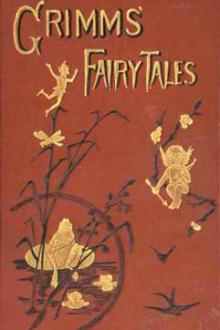
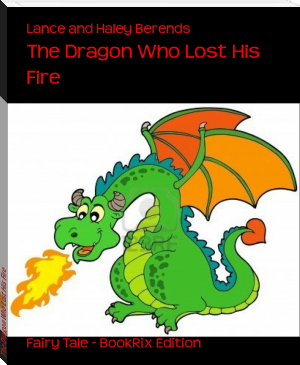
Comments (0)